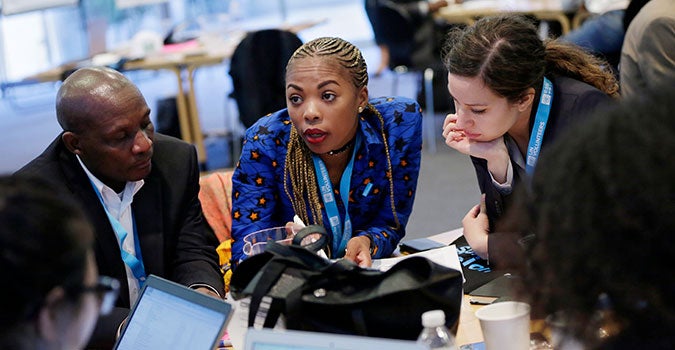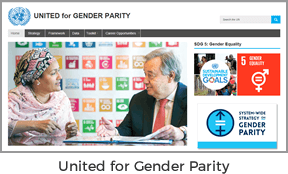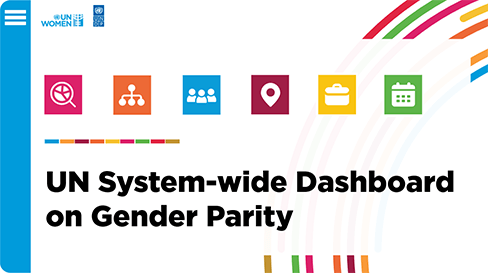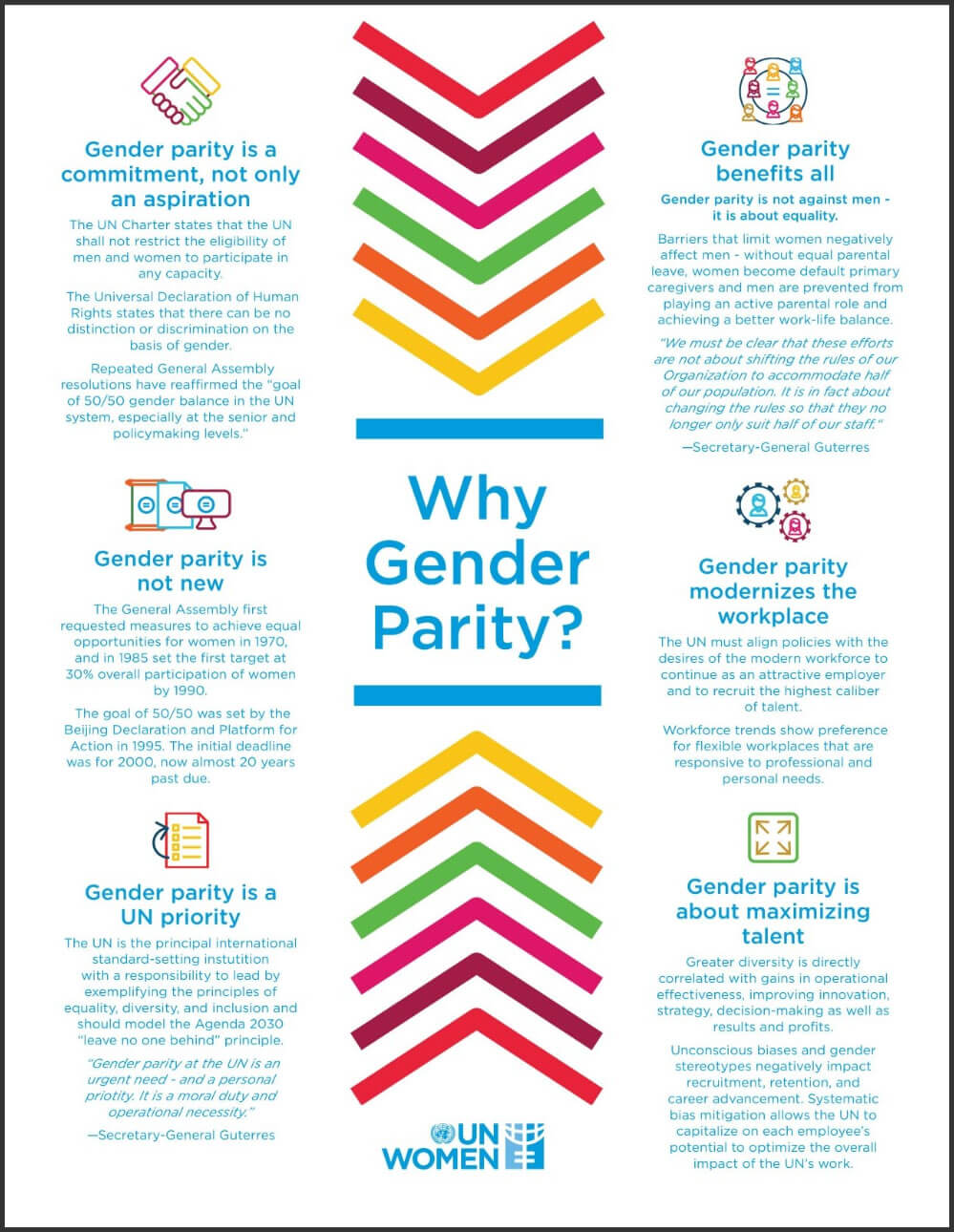Gender parity in the United Nations

As a standard-setting organization, the United Nations has a particular responsibility to lead by example in ensuring the equal and active participation of women at all levels of the UN system. This is also necessary for integrating a gender perspective into UN policies and programmes. UN Women is mandated to lead, coordinate and promote the accountability of the UN system for women’s equal representation.
The Charter of the United Nations stipulates that there shall be no restrictions on the eligibility of men and women to participate in every capacity and under conditions of equality in the system’s principal and subsidiary organs. The Universal Declaration of Human Rights reinforced this principle, stating that there can be no distinction or discrimination on the basis of gender.
UN Women’s support
UN Women provides regular updates on the status of women in the UN system, including to the General Assembly, the Commission on the Status of Women, the UN Inter-Agency Network on Women and Gender Equality (IANWGE) and the UN Secretary-General’s Change Management Committee. This helps ensure the equal representation of women in the agendas of all UN organizations.
A number of policies, strategies, tools and mechanisms help the system advance women’s participation. The latter include networks of focal points to champion gender-related issues, data collection, and regular reporting and monitoring. Thirty-two UN entities encourage gender balance within their own organizations, many by drawing on UN Women’s support. We assist in pinpointing positive and negative trends as they emerge, and, as needed, identifying shared solutions.
The biennial Secretary-General’s Report on the Improvement of the Status of Women is the United Nations’ main report on the equal representation of women in the UN system. Tracking progress by entity, it provides evidence for UN Women advocacy and guides us in developing tools such as resource packs for each entity. The packs include info-graphics highlighting key trends, tailored factsheets, projections on the number of years to achieve parity at current rates of change and recommendations.
Featured publications
- Shaping the international agenda II: Progress on raising women’s voices in intergovernmental forums
- Top tips to foster inclusivity online during COVID-19
- How to address online sexual harassment during COVID-19
- Ten ways to create an enabling environment during COVID-19
- Enabling environment in action: Flexible working arrangements and inclusive engagement
- Enabling environment guidelines for the United Nations system and Supplementary guidance
- System-wide strategy on gender parity: UN Women implementation plan
- System-wide strategy on gender parity


